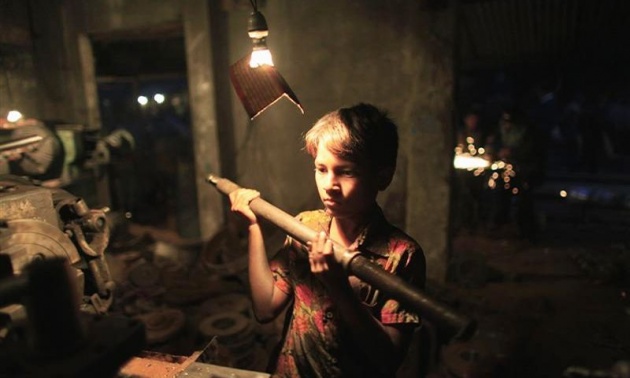A low-cost insurance innovation for the very low-income households in Hyderabad, Sindh, has been successful in limiting child labour. The National Rural Support Program (NRSP), Pakistan’s premier poverty alleviation agency, which focuses on rural development, devised innovative insurance regimes for those who borrowed from the NRSP’s microfinance schemes.
The results of a carefully designed experiment, which appeared in the Journal of Health Economics, revealed that households with the enhanced insurance reported lesser incidence of child labour than the rest.*
Pakistan gained notoriety for child labour with the unfortunate death of Iqbal Masih, a teenage boy who was shot dead in 1997. While he died in mysterious circumstances, there was nothing mysterious about him being a child labourer. His death led to a boycott of Pakistani-made carpets, which many believed employed child labour.
Child labour continues to be ubiquitous in Pakistan. The high fertility rates among the very poor serve as an insurance policy when the breadwinners die suddenly or are incapacitated because of illness or injury. The children are shipped to work to support the family when the traditional support structure breaks down.
Banning child labour has been the preferred unthinking solution for many. However, such drastic interventions have seldom delivered. In fact, such bans condemn children to even worse outcomes, such as prostitution.
The NRSP came up with a novel solution that targeted the root cause of the problem, and not merely its symptoms. Knowing that children are sent to work when the support network collapses, the NRSP intervention bolstered the safety net against unexpected hazards.
The results of the intervention are interesting. Households with enhanced insurance options reported less incidence of child labour and lower school dropout rates than the rest.




